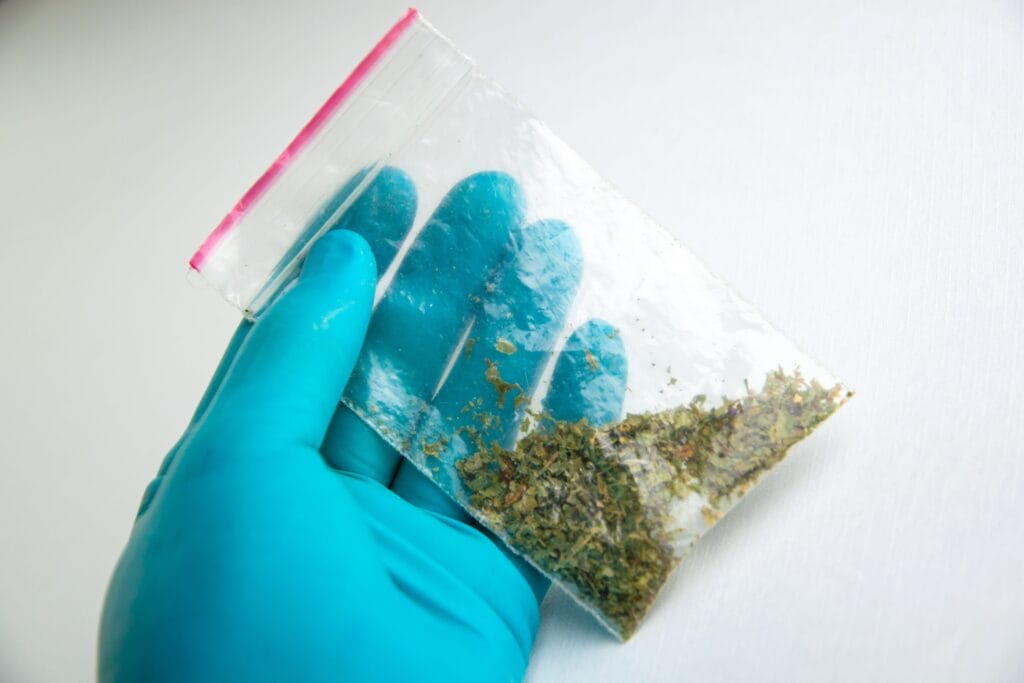The Dangers of THC-O Consumption

THC-O is a type of synthetic cannabinoid. Synthetic cannabinoids are also called synthetic marijuana, and they’re drugs chemically engineered to replicate the effects of THC. THC is the psychoactive compound in natural marijuana. Synthetic cannabinoids are often sprayed onto plant material and then marketed as herbal smoking blends or similar products.
They’re sold in tobacco or head shops, often under names like K2 or Spice. It’s sometimes available online, but the products are labeled as herbal smoking blends or incense, which allows them to evade legal restrictions. Street vendors may also sell these products. Synthetic marijuana is usually smoked in rolled cigarettes or through pipes, and some users vaporize it with electronic vaporizers.
There are several risks associated with synthetic marijuana products, and they are not considered a “safe” alternative to any substance.
What Is THC-O?
THC-O is also called THC-O acetate. The synthetic cannabinoid is chemically similar to THC, but it’s often marketed as more potent. Marketers of THC-O products frequently claim they produce stronger, more intense effects than conventional THC.
THC-O is thought to work similarly to traditional THC by interacting with the endocannabinoid system, or ECS, in the body. The ECS regulates physiological processes like mood, sleep, appetite, and immune function.
It’s believed THC-O binds to CB1 receptors in the brain and central nervous system like natural THC. These receptor sites are responsible for the psychoactive effects that stem from the use of cannabinoids. Through the binding to these receptor sites, THC-O can influence the release of neurotransmitters like dopamine, leading to a high or euphoric effect linked to THC.
The Effects of THC-O
THC-O effects can include:
- A euphoric high.
- Alterations in sensory perception, like changes in time perception, intensified sounds, or enhanced colors.
- It can relax the body, reducing stress and creating feelings of calm.
- Users may experience cognitive function changes like alterations in thinking and short-term memory.
- It may stimulate the user’s appetite.
- Some say the effects are longer-lasting and more intense than traditional THC.
How Are Synthetic Cannabinoids Made?
Producing synthetic cannabinoids, including THC-O, involves chemically synthesizing the compounds that mimic the effects of natural cannabinoids. The manufacturing of these products is often carried out in illicit labs, and the process can vary. The starting materials usually include precursor chemicals. These chemicals are put through reactions to form the synthetic cannabinoids.
The molecular compound structure can be changed, and then, once the products are synthesized, they’re dissolved in a solvent. The solution can be sprayed onto plant material or blended with other substances. The synthetic cannabinoids are absorbed by the plant material, which creates something that can be smoked or vaporized.
The final product is packaged, often labeled as incense or potpourri. The packages may have disclaimers that say that the products aren’t meant for human consumption. The formulation of synthetic cannabinoids frequently changes to evade laws and legal restrictions. For example, the chemical structure of the compounds can be altered to create variations not explicitly prohibited or regulated.
The production of synthetic cannabinoids comes with significant risks. For example, the clandestine labs where the products are made usually lack regulations, raising concerns about the product’s safety, purity, and consistency. Rapid formulation changes also make it hard to predict the potential health effects and risks of each variation.
In general, using synthetic cannabinoids can have serious health risks with unpredictable outcomes.
What Are the Risks of THC-O?
Some risks that can come with using THC-O include:
- The production and sale of THC-O aren’t regulated the same way as natural cannabis products, raising safety concerns.
- THC-O is often marketed as being more potent than traditional THC, increasing the risk of adverse effects, especially in people not used to the intensity.
- There is a lack of long-term studies currently available on the effects of THC-O.
- Synthetic cannabinoids are known for having unpredictable, adverse effects on the body and mind, including paranoia, anxiety, and other negative psychological experiences.
- Physical health risks of synthetic marijuana have included nausea and vomiting, paranoia, hallucinations, and seizures.
- The legal status of this product varies depending on local regulations, so using it may be illegal.
- Since the production of THC-O isn’t closely regulated, there are concerns about the accuracy of the labels and the presence of contaminants in products. These contaminants could independently have unknown risks.
- Potential interactions between THC-O and other substances and medications aren’t well-studied, so there could be risks from combining it with other drugs.
There are fears that the product could lead to addiction and dependence as well. Cannabis use and THC-O can lead to psychological dependence in some people. That means THC-O users could develop compulsive or habitual patterns of use because they perceive positive effects associated with it. The potential for addiction or dependence varies among people and is influenced by mental health, genetics, and environmental factors.
THC-O and Lung Disease
A report from the Journal of Medical Toxicology for the first time linked THC-O acetate with the potential to cause the same lung illness, leading to dozens of fatalities and thousands of cases of disease from vaping in 2019 and early 2020. The researchers said that when THC-O is heated, it can produce ketene. Ketene is a toxic substance associated with e-cigarette or vaping use-associated lung injury, known as EVALDI.
Since 2019, the lung illness has been cited in 68 deaths and more than 2,800 hospitalizations. Symptoms include:
- Shortness of breath
- Fever and chills
- Cough
- Vomiting
- Diarrhea
- Headache
- Rapid heart rate
- Dizziness
- Chest pain
Consumer concerns led California NORML to issue a warning on January 9, 2023, that THC-O acetate is one of several hemp-derived cannabinoids not tested for safety in humans.
Is THC-O the Same As Synthetic Marijuana?
THC-O and synthetic marijuana are different substances with their chemical compositions. Still, both synthetic cannabinoids’-O have an acetate group attached to their molecular structure, making them more potent.
Although they have different chemical structures, forms, and potencies, both raise concerns about potential health risks, and people are strongly advised to avoid using them.
You may also hear the term spice when discussing synthetic marijuana, and again, while there are similarities, THC-O is a distinct product. Spice is a category of synthetic cannabinoids, and it can be a term used interchangeably with synthetic marijuana.
Experience You Can Trust
Here at Midwest, we believe that the most effective method for treating marijuana addiction is a holistic approach that includes multiple avenues. That’s why our treatment model includes:
- Experiential group therapy to help clients achieve a better understanding of themselves and their personal strengths.
- Cognitive behavioral therapy, which focuses on changing behaviors and developing coping mechanisms.
- 12-step integration to help recovering addicts connect with others in a positive group setting.
- Rational-emotive behavior approaches to help clients change irrational beliefs.
- Psycho-educational groups to help clients learn coping skills and educating on practical life skills.
Our staff members are highly educated in addiction recovery and naturopathic remedies. Additionally, many of our support staff have personally walked the path of recovery and are uniquely qualified to inspire those on the journey.
Final Thoughts
There are a lot of things we still don’t know about the risks of using THC-O and other synthetic cannabinoid products. As a result, avoiding these products is the best option.
However, if you or someone you love struggles with THC-O consumption, contact us. We’re experienced, ready, and willing to help. And our multi-phasal transitional recovery program allows us to adjust our treatment approach to your specific recovery needs.



